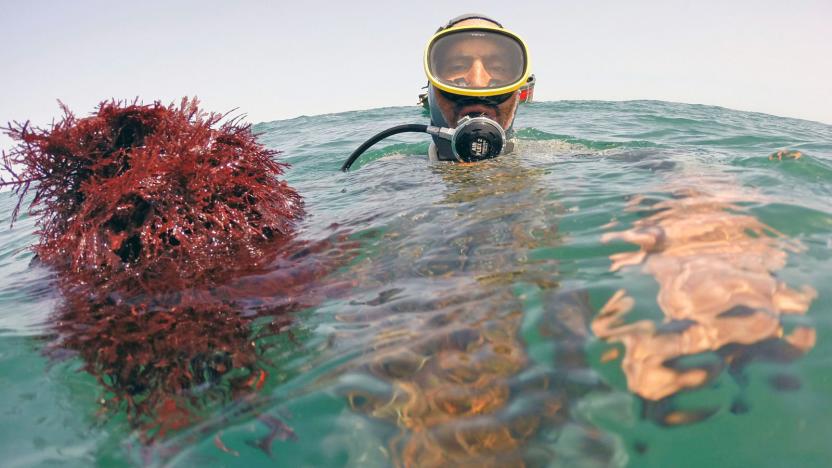seaweed
Latest

Seaweed could be the key to long-lasting electric car batteries
Lithium-sulfur batteries are theoretically ideal for powering gadgets. They have more than twice the energy density of lithium-ion packs, but at a much lower cost thanks to sulfur's dirt-cheap price. There's just one problem: sulfur dissolves, giving the battery a short lifespan. That's where Berkeley Lab might help. It recently discovered that a derivative of red seaweed, carrageenan, can stabilize a lithium-sulfur battery and make it practical for more devices. If you use the seaweed derivative as a binder (the "glue" that keeps a battery's active materials together), it reacts with the sulfur and prevents it from dissolving. The ultimate goal is to produce cells that last for "thousands" of charging cycles, or better than many batteries you see today.

This is the future of food
Are you ready for lab-made hamburgers, bug-filled protein bars and 3D-printed cuisine? With the Earth's population rapidly approaching 8 billion and the race to keep up with food demand intensifying, industries have begun to drain essential resources and adversely affect the environment. Thanks to some scientific know-how, we're finding new ways to bypass those issues while still bringing natural and nutritious food to the table. In honor of that quest, we've gathered an assortment of forward-thinking products and projects that aim to alleviate the environmental impact of feeding the world and help kickstart a farming future for our space-faring progeny. [Images: David Parry / PA Wire (Cultured Beef); Chloe Rutzerveld (Edible Growth); 3D Systems (ChefJet)]

Hybrid rocket / seaweed jet ready to fly in 2050, keep emissions above ozone (video)
What's cooler than jetting from Paris to Tokyo in under three hours? Getting there in a biofuel burning hybrid rocketplane. The recently announced superjet, the Zehst (short for "Zero Emission Hypersonic Transportation"), loopholes around the whole pollution angle by only using its rocket engines in the stratosphere. Below the ozone however, seaweed-biofuel powered jet engines will kick in for some keen, green landings. Don't get too excited though, the EADS won't even have a prototype ready until 2020, and commercial flights aren't expected to follow until the hump of the century. Look on the bright side though, you've still got that airline-approved Galaxy Tab to keep you occupied for the next four decades of long, dark, redeyes. That's almost as cool, right?


